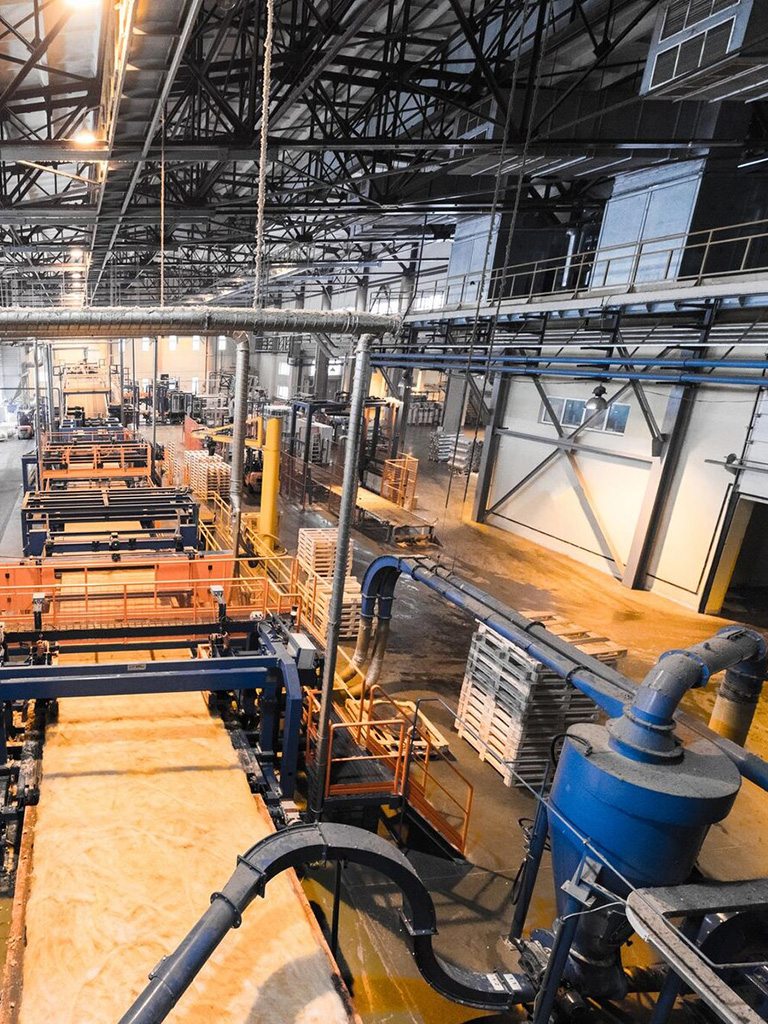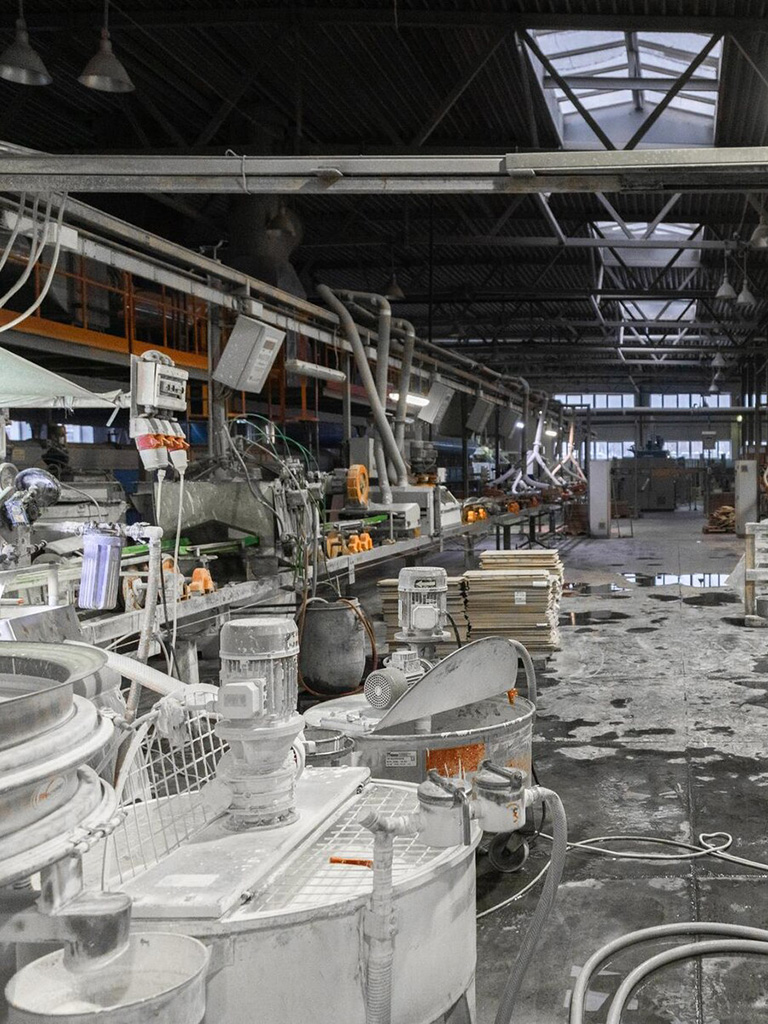Production halls and facilities are places with a high fire risk due to the presence of machinery, flammable materials and intensive technological processes. Fire protection in such facilities is crucial to ensure the safety of employees and the protection of property. Examples of fire hazards include electrical short circuits, chemical leaks, and fires related to welding or metalworking processes.
Types of fire protection systems
Fire protection systems in production halls and facilities operate on the principle of automatic detection and extinguishing of fires, ensuring rapid and effective reduction of fire risk. Below are the mechanisms of operation of individual systems:
Activation and operation mechanisms of individual systems
- Sprinkler Systems: Consists of a network of pipes filled with pressurized water, with sprinklers installed. When a sensor in a sprinkler detects a high temperature, it activates, releasing water. The sprinklers are scattered throughout the facility, providing wide coverage.
- Sprinkler Systems: Similar to sprinklers, but the sprinklers are spaced to provide greater coverage of areas, which is beneficial in large, open production areas.
- Mist Systems: Produces fine, high-pressure water droplets that effectively extinguish fires by rapidly cooling the fire and reducing the oxygen concentration. They are ideal for protecting delicate devices and electronic equipment because they use minimal amounts of water.
- Gas Extinguishing Systems: Uses gases such as CO2, FM-200, or Novec 1230. Once a fire is detected, the gas is released, reducing the oxygen level in the area, effectively extinguishing the fire without damaging electronic devices or delicate materials.
- Foam Systems: Used in areas where flammable liquids are present. Foam creates a barrier that limits oxygen access to the fire, smothering the fire and preventing it from spreading.

Automation and integration with fire control panels
All fire protection systems can be integrated with fire control panels, which monitor and control their operation. Fire control panels collect data from sensors located throughout the facility. When a sensor detects a fire (smoke, heat, flames), the control panel immediately activates the appropriate extinguishing system and alerts the staff and the appropriate emergency services. Automation of these systems ensures:
- Rapid response: Immediate system activation upon detection of a fire.
- Efficiency of operation: Precise and coordinated fire extinguishing, minimizing damage.
- Employee safety: Rapid alerting and evacuation support.
- Control and monitoring: Constant supervision over the status of systems and the possibility of immediate intervention in the event of a failure.
Thanks to advanced technology, fire protection systems in production halls provide the highest level of protection, minimizing the risk of fires and their effects.
Benefits of using fire protection systems
The introduction of advanced fire protection systems in halls and production facilities brings many benefits that translate into safety, compliance with regulations and cost optimization.
Protection of property and employees
One of the main goals of fire protection systems is to protect the life and health of employees and to protect property from destruction. These systems respond immediately to the detection of fire, which allows for quick extinguishing of the fire and minimizing its effects. This reduces the risk of injury to employees and material losses, which is particularly important in places where expensive machines and raw materials are located.
Minimizing production downtime
Rapid detection and extinguishing of fires by automatic fire protection systems allows for minimizing production downtime. Any interruption in production activity can lead to significant financial losses. Thanks to an effective fire protection system, the production process can be quickly resumed after the situation has been brought under control, which allows for maintaining operational continuity and minimizing losses.
Fulfillment of legal and insurance requirements
The installation of fire protection systems is often required by law and insurance conditions. Meeting these requirements is crucial for the legal operation of the company and obtaining favorable insurance conditions. Fire protection systems that meet safety standards and norms help avoid financial penalties and reduce insurance premiums, which translates into savings.
Increased trust of customers and business partners
Having advanced fire protection systems can significantly increase the trust of customers and business partners in a company. It shows that the company prioritizes safety and is well prepared to manage risk. As a result, companies can gain a competitive advantage and build a positive image in the industry.
Environmental Damage Protection
Some fire protection systems, such as mist systems or gas systems, minimize the environmental damage that can result from a fire. The water used in mist systems is dispersed into very fine droplets, which reduces water consumption and minimizes flooding. Gas systems, on the other hand, extinguish the fire without leaving any residue, which is good for the environment and easier to clean up.
Improving working conditions and employee morale
Workplace safety is a key factor in employee morale. Having modern fire protection systems provides employees with a sense of security, which can lead to increased productivity and engagement. Knowing that the company cares about their safety has a positive impact on the overall atmosphere and job satisfaction.

Examples of using systems in production halls
Examples of completed projects show how various fire protection systems can be effectively used in production halls:
- Metallurgical industry: Installation of mist systems in halls with furnaces and metalworking equipment, which provides effective protection against high temperatures and sparks.
- Chemical industry: Foam systems used to protect against flammable liquid fires in chemical plants, minimizing the risk of explosion and spread of fire.
- Logistics centres: Sprinkler and deluge systems in high-bay warehouses that protect stored goods and prevent the spread of fire.
Fire protection system service and maintenance
Regular maintenance and servicing of fire protection systems are crucial to their reliability and longevity:
- Regular inspection and maintenance: Carry out regular technical inspections and maintenance to ensure that all system components are in good working order and ready for operation.
- System updates and upgrades: Upgrading and updating systems to maintain compliance with the latest security standards and increase their operational efficiency.
- Rapid response to breakdowns and repairs: Our technical support team is available 24/7 to provide immediate assistance in the event of a breakdown, minimizing operational downtime and ensuring continuity of fire protection.
Cooperation
Cooperation with our company in the field of fire protection of production halls is a guarantee of professionalism and the highest quality of services. Our solutions are tailored to the specific needs of each production hall, providing comprehensive protection against fire hazards. We offer full support from initial risk analysis and system design, through its installation, to regular maintenance and service. Thanks to our experience and advanced technology, we help minimize the risk of fire, protecting property, the lives of employees and the operational continuity of production. Contact us to find out how we can jointly ensure the safety of your production hall.
